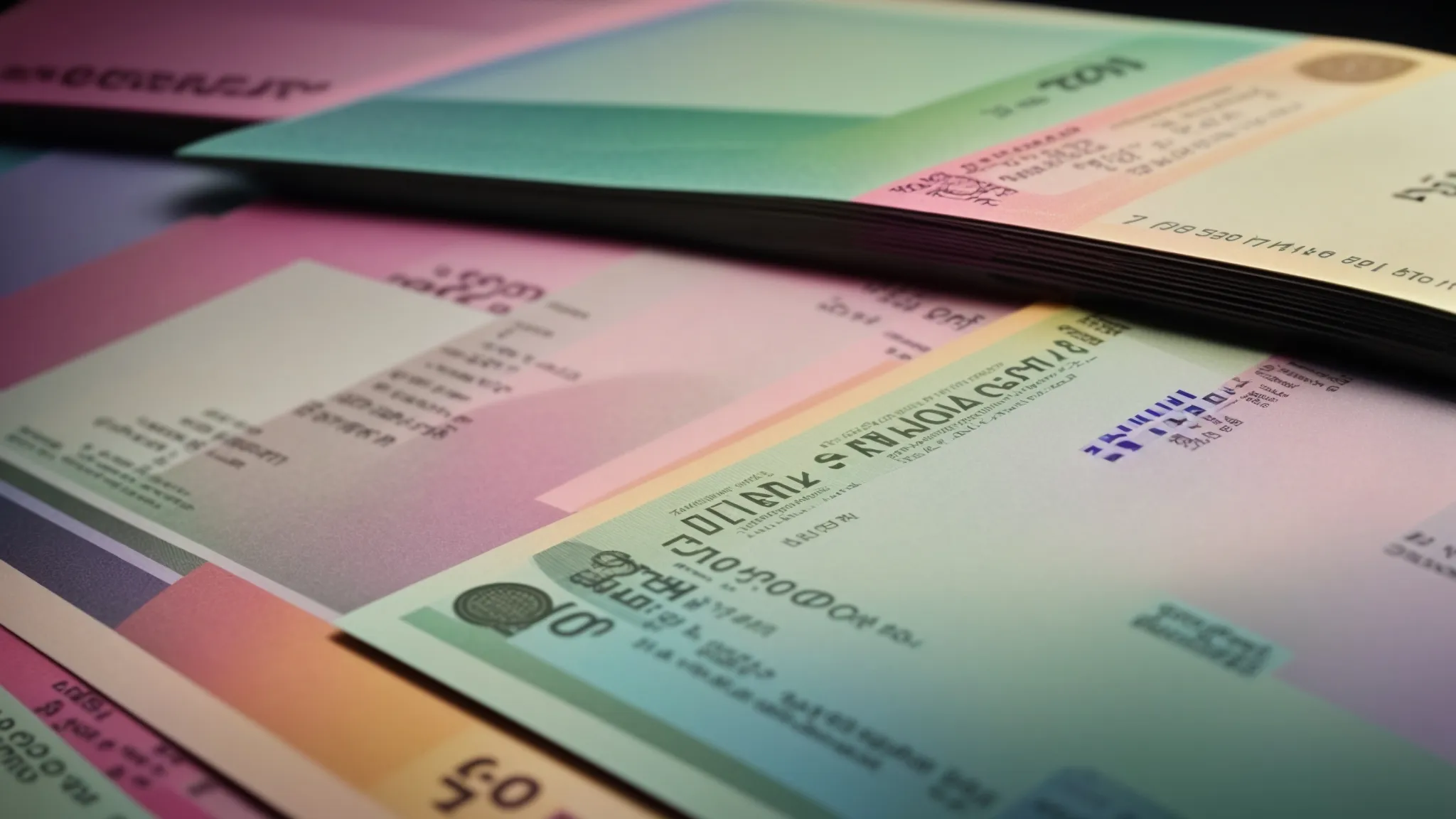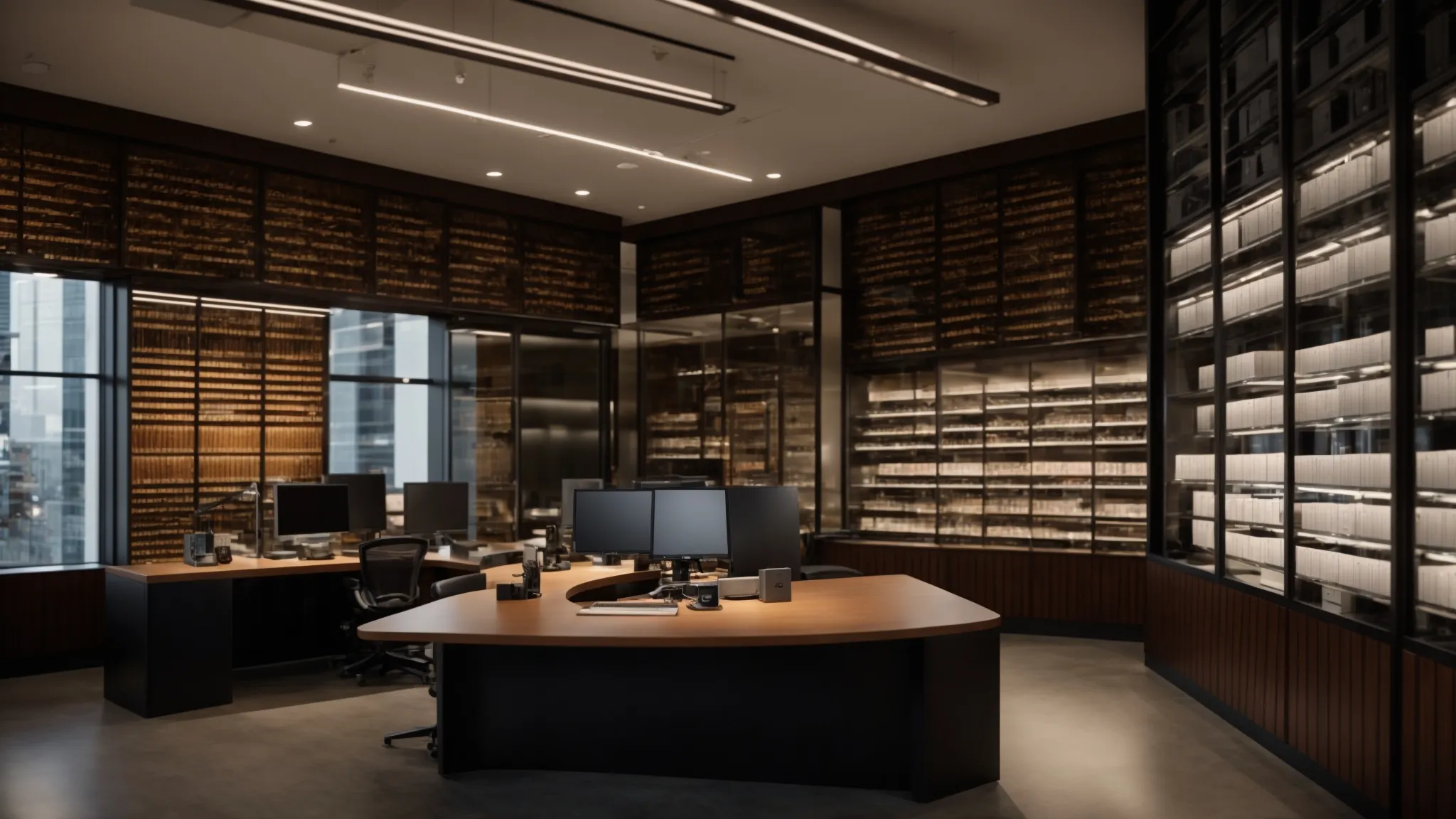Understanding the cost of custom order cheques can be challenging for many businesses. Factors such as cheque features, vendor pricing structures, and seasonal trends play a critical role in determining the pricing. In this article, key elements that affect cheque costs will be discussed, along with the importance of quality assurance. Readers will benefit by gaining insights into how to calculate the total cost effectively, solving the common issue of unexpected expenses. By exploring these factors, businesses can make informed decisions to ensure their funds are secure while complying with standards set by organizations like the Better Business Bureau in the industry.
Key Elements Affecting the Pricing of Custom Order Cheques for Businesses

Several key elements influence the pricing of custom order cheques for organizations. Material quality and types of paper used impact the overall durability and appearance, while design complexity and customization options contribute to customer interest in unique cash handling solutions. Order volume often leads to bulk discounts, and various printing techniques can affect production costs. Additionally, shipping and handling fees play a crucial role in the final price.
Material Quality and Types of Paper Used
The material quality and types of paper used in custom order cheques play a significant role in determining their pricing. High-quality paper not only ensures durability but also enhances the overall aesthetic appeal of the cheque, making it an attractive asset for businesses. Organizations often opt for sophisticated paper types to convey professionalism, which can be particularly important in a contract-based culture where the appearance of financial documents may influence client trust and reliability.
Moreover, investing in superior paper can mitigate risks associated with fraud. Cheques made from specialized paper types that include anti-fraud features can deter counterfeit attempts, providing an added layer of security for businesses. While this may involve additional fees compared to standard options, the long-term benefits such as safeguarding assets and maintaining a reputable image can outweigh the initial costs, making it a practical choice for many companies.
Design Complexity and Customization Options
Design complexity and customization options significantly influence the cost of custom order cheques for businesses. When organizations work with financial institutions, they often seek unique designs that reflect their brand identity. Customization can include logos, colors, and specific layouts, which can elevate the overall appeal of the cheque while ensuring it aligns with the company’s policy for maintaining a professional image. This tailored approach not only helps in establishing brand recognition but also builds customer trust, especially in a competitive market.
Additionally, companies that require sophisticated security features in their cheques may find that intricate designs come with higher production costs. For instance, incorporating advanced anti-fraud elements while considering the cheque‘s aesthetic can add to the expense. Financial institutions often emphasize the importance of using reliable designs that secure credit transactions, as clients value the assurance that their financial documents are both functional and visually distinctive. This careful balance between design and security ultimately leads to a more robust cheque solution that addresses the unique needs of various businesses.
Order Volume and Bulk Discounts
Order volume plays a significant role in the pricing of custom order cheques for businesses. Larger orders typically qualify for bulk discounts, helping companies save money on their cheques, which are essential for managing transactions and maintaining professional checking accounts. For businesses with a steady cash flow, consolidating cheque orders can be a strategic reason to reduce costs while ensuring a consistent supply for point of sale and operational needs.
In many instances, businesses find that ordering cheques in greater quantities not only lowers their overall costs but also streamlines their operations. This approach minimizes the frequency of reordering and the associated administrative tasks, paving the way for more efficient cash management. By taking advantage of these bulk order discounts, organizations can focus on growth and client relations, ensuring their financial transactions remain secure and professionally presented.
Printing Techniques and Technologies
The printing techniques and technologies used in the production of custom order cheques significantly affect their pricing. Advanced methods, such as digital printing, allow for high-quality images and precise details that enhance design options, which appeals to consumers seeking unique and professional-looking personal checks. However, investing in these technologies can raise the overall cost of cheque production, as they require specialized equipment and skilled personnel to operate effectively.
Additionally, varying printing techniques offer different levels of security features that can influence both cost and consumer confidence. Techniques such as offset printing provide exceptional durability and vibrant colors, while laser printing enables easy compatibility with software for generating personal checks. Businesses that prioritize these printing options often find that while the initial expense may be higher, the return on investment comes from reduced fraud risks and enhanced brand reputation, making them a practical choice for effective financial management.
Shipping and Handling Costs
Shipping and handling costs are essential considerations when ordering checks for a business. These fees can vary based on factors such as distance, speed of delivery, and the volume of checks ordered. Understanding the implications of these costs is crucial, as they directly affect the overall price. Organizations should evaluate their options for economical shipping methods that align with their needs while ensuring timely receipt of checks necessary for managing transactions and maintaining a bank account.
Moreover, businesses must adhere to legal requirements when it comes to shipping checks to prevent any potential issues. For instance, shipping checks in a secure manner is vital to avoid the risks associated with fraud. By selecting trusted shipping services that offer tracking and insurance, organizations can ensure that their custom order checks arrive safely and directly to their door, maintaining professionalism and integrity in all financial dealings.
While pricing is key, it is equally vital to understand the features of custom order cheques. These elements shape costs and influence your choices, making a closer look essential.
Understanding Different Cheque Features and Their Costs

Security features play a vital role in ensuring safe financial transactions, protecting against crime and audits. Personalization and branding options enhance company visibility while specialized printing techniques cater to unique needs. Each of these elements directly impacts the final cost of custom order cheques, providing valuable insights for businesses focused on effective checking solutions.
Security Features to Consider
Security features are a crucial consideration when ordering custom cheques for businesses. Elements such as watermarks, micro-printing, and color-shifting ink not only enhance security but also deter potential fraud. By selecting cheques with advanced security features, organizations can protect their financial transactions and instill confidence among clients regarding the integrity of their payments.
Investing in cheques that incorporate these security measures adds to the overall cost, but the long-term protection they provide is invaluable. For example, businesses can avoid the financial losses associated with counterfeit cheques and maintain a trustworthy reputation. By prioritizing security, companies ensure that their cheque processing remains streamlined and secure, safeguarding their interests in the competitive marketplace.
Personalization and Branding Options
Personalization and branding options are essential factors influencing the cost of custom order cheques for businesses. Organizations often choose to incorporate their logos, brand colors, and unique designs to enhance their image and ensure consistency in their financial documents. This tailored approach not only boosts brand recognition but also communicates professionalism, making a strong impression on clients and stakeholders.
While adding personalization features can lead to higher production costs, the investment pays off in terms of building customer trust and loyalty. Businesses that prioritize branding through customized cheques can differentiate themselves in competitive markets, providing added value that supports growth and establishes a trustworthy reputation. For many organizations, these enhancements are not just an expense; they are a strategic investment in their brand identity.
Specialized Printing Techniques
Specialized printing techniques significantly impact the cost of custom order cheques for businesses. Methods such as offset printing and digital printing enable organizations to achieve high-quality visuals and intricate designs, enhancing the overall professionalism of their financial documents. While these advanced techniques may come with higher production costs, the investment can yield dividends in terms of branding and reducing fraud risk.
Another vital aspect of specialized printing is the incorporation of security features that enhance cheque safety. Techniques like micro-printing and color-shifting ink help prevent counterfeiting, ensuring that financial transactions remain secure. By prioritizing these specialized techniques, businesses can fortify their cheque production, which not only meets client expectations but also builds long-term trust in the organization’s financial reliability.
Cheques come with distinct features, each carrying its own price. Understanding vendor pricing structures now reveals what truly matters for your business.
Analyzing Vendor Pricing Structures

When evaluating the cost of custom order cheques, businesses must consider various factors that influence vendor pricing structures. A comparison of online printers and local suppliers can reveal significant differences in service and cost. Understanding pricing tiers and packages helps organizations make informed decisions. Moreover, being aware of hidden fees and additional charges can prevent unexpected expenses, ensuring a more accurate budgeting process.
Comparison of Online Printers and Local Suppliers
When comparing online printers and local suppliers for custom order cheques, businesses may encounter varied pricing structures that can impact their budget. Online printers often operate with lower overhead costs, allowing them to provide competitive pricing for bulk orders. This can be advantageous for companies looking to save on costs while still receiving high-quality products that meet their specific requirements.
On the other hand, local suppliers may offer personalized service that online printers cannot match. Choosing a local provider enables businesses to communicate directly and establish a relationship, which can lead to tailored solutions that fit their unique needs. However, this level of service may come at a higher price point. Weighing these options carefully can help organizations make informed purchasing decisions regarding their custom order cheques.
Understanding Pricing Tiers and Packages
Understanding the various pricing tiers and packages offered by cheque vendors is essential for businesses looking to optimize their expenses. Different providers may have distinct structures that cater to specific order sizes or customization levels, which can result in significant cost variations. Organizations should carefully review these tiers to ensure they select a package that aligns with their cheque printing needs while maximizing value.
In many cases, businesses can secure better rates by committing to larger orders, which often leads to bulk discounts and reduced per-unit costs. For instance, a company that orders a higher volume of cheques may benefit from lower pricing tiers designed to reward customer loyalty and higher order quantities. This strategic approach not only enhances budget management but also supports efficient operations, making it an attractive solution for organizations aiming to maintain seamless financial transactions.
Hidden Fees and Additional Charges
When ordering custom cheques, businesses may encounter hidden fees that can significantly alter the overall cost. These additional charges can stem from various sources, including design alterations, premium paper selections, or expedited shipping options. Understanding these potential costs upfront is essential for effective budgeting and avoiding unexpected expenses that could disrupt cash flow.
Moreover, some vendors may impose extra fees for features such as special security measures or extensive customization requests. It is crucial for organizations to thoroughly review pricing agreements to identify any outlined fees. Ensuring transparency in vendor pricing can help businesses make informed decisions, ultimately leading to better financial planning and a smoother cheque ordering experience.
Understanding vendor pricing reveals patterns that are often hidden. As seasons change, so too do promotions that can shift those prices in unexpected ways.
Seasonal Trends and Promotions Impacting Prices

Timing can significantly influence the cost of custom order cheques for businesses. Understanding when to place orders can lead to substantial savings, especially during sales events when potential discounts are available. This section will explore the best times to order to ensure competitive pricing and highlight promotional opportunities that can enhance value.
When to Order for Best Pricing
Timing plays a crucial role when ordering custom cheques, as certain periods may offer better pricing opportunities. Businesses can achieve significant savings by placing orders during off-peak times or holiday sales when vendors often reduce prices to attract more customers. Being aware of seasonal trends and planned promotions allows organizations to strategically plan their cheque orders, enhancing both their budget and operational efficiency.
Additionally, businesses should consider establishing a regular ordering schedule to take advantage of recurring discounts and promotions. For instance, some vendors may provide lower costs during specific months or for repeat customers. This proactive approach not only ensures that companies receive competitive pricing but also maintains a steady supply of cheques, which is essential for seamless financial transactions.
Potential Discounts During Sales Events
Businesses can significantly reduce the cost of custom order cheques by taking advantage of potential discounts during sales events. Vendors often offer promotional pricing during holiday seasons or special sales periods, allowing organizations to purchase cheques at a fraction of the regular price. For instance, a business that orders cheques during a year-end sale could save on printing costs and potentially reinvest those savings into other operational areas.
Planning purchases around these sales events not only enhances financial efficiency but also ensures that organizations maintain an adequate supply of cheques without exceeding their budgets. Companies can benefit from staying informed about vendor promotions and seasonal trends, which can lead to substantial savings on crucial financial documents. By timing their orders strategically, businesses can secure high-quality cheques at competitive prices while enhancing their overall cash management strategy.
Price shifts can be sharp, tied closely to seasonal demands and promotions. But quality assurance in pricing is where true value lies, ensuring what is paid matches what is delivered.
Importance of Quality Assurance in Pricing

Quality assurance plays a critical role in determining the pricing of custom order cheques. Efficient quality control processes ensure that cheques meet the highest standards before they reach customers. Additionally, requesting sample checks prior to placing an order allows businesses to evaluate security features and design quality, reinforcing their investment in dependable financial documents.
Role of Quality Control Processes
The role of quality control processes is crucial in the production of custom order cheques, as it ensures that each cheque meets set standards before reaching the client. Effective quality assurance methods involve thorough inspections and tests that identify potential issues, such as printing errors or security flaws. By implementing robust quality control, businesses can be confident that their financial documents not only look professional but also function reliably.
Importance of Sample Checks Before Order
Requesting sample checks before placing an order is a critical step that businesses should not overlook. These samples allow organizations to assess the quality of materials used and the design elements incorporated, ensuring they align with the company’s brand identity and reputation. By evaluating samples, businesses can identify any potential issues related to security features or print quality, thus making informed decisions that promote trust among clients and stakeholders.
Additionally, using sample checks provides an opportunity for businesses to fine-tune their final order according to their specific needs. This proactive measure helps avoid costly mistakes related to design errors or inadequate security features. In the long run, investing time in reviewing sample cheques contributes to better quality assurance, ensuring the final products meet the expected standards and reinforcing the integrity of financial transactions.
Quality assurance in pricing lays the groundwork for informed decisions. Next, understanding how to calculate the total cost of custom order cheques will ensure that businesses get exactly what they need without any surprises.
Calculating the Total Cost of Custom Order Cheques

Estimating all associated costs is essential for businesses when determining the total price of custom order cheques. Companies should also budget for regular reorders to ensure a consistent supply. Assessing the long-term value versus initial cost helps organizations make informed decisions, balancing quality and affordability for effective financial management. Each of these factors plays a vital role in the overall value and effectiveness of cheque printing.
Estimating All Associated Costs
Estimating all associated costs when ordering custom cheques involves considering several factors beyond just the per-unit price. Organizations often overlook additional expenses such as shipping, handling, and any applicable design fees. By taking these into account, businesses can develop a more accurate figure that reflects the total financial commitment required for their cheque printing needs.
Additionally, businesses should plan for ongoing costs related to reordering cheques, which ensures they maintain a consistent supply to support their financial operations. Understanding the long-term value of investing in high-quality cheques can help organizations balance quality with affordability, leading to better overall management of their finances. This strategic approach ultimately supports smoother transactions and a reliable cash flow for any business.
Budgeting for Regular Reorders
Budgeting for regular reorders of custom order cheques is essential for maintaining a streamlined financial operation. Businesses can avoid running out of cheques at critical moments by forecasting their cheque usage and establishing a reorder schedule. This proactive approach helps mitigate last-minute ordering, which can often incur higher fees and disrupt cash flow.
Additionally, companies should analyze their cheque usage patterns to determine an optimal reorder quantity that balances inventory levels and costs. By taking advantage of bulk order discounts when reordering, businesses can significantly reduce the per-unit cost of their custom cheques. This strategy not only ensures consistent availability but also supports efficient cash management while reinforcing the professional image conveyed through well-maintained financial documents.
Assessing Long-Term Value Versus Initial Cost
When evaluating the cost of custom order cheques, organizations must weigh the initial expense against the long-term value. Investing in high-quality cheques may involve a higher upfront cost, but the benefits of enhanced security features and better durability often lead to reduced risks of fraud and fewer replacement orders over time. This strategic investment not only protects the company’s financial assets but also builds trust with clients through the consistent presentation of well-crafted financial documents.
Furthermore, businesses should consider how the choice of custom checks impacts their overall financial efficiency. Cheques that meet specific branding and security requirements can enhance professional image and operational reliability. By understanding that the lowest initial cost might not always translate into the best value, organizations can make informed decisions that align their cheque purchasing strategy with long-term financial goals, ensuring seamless cash management and sustained client confidence.

